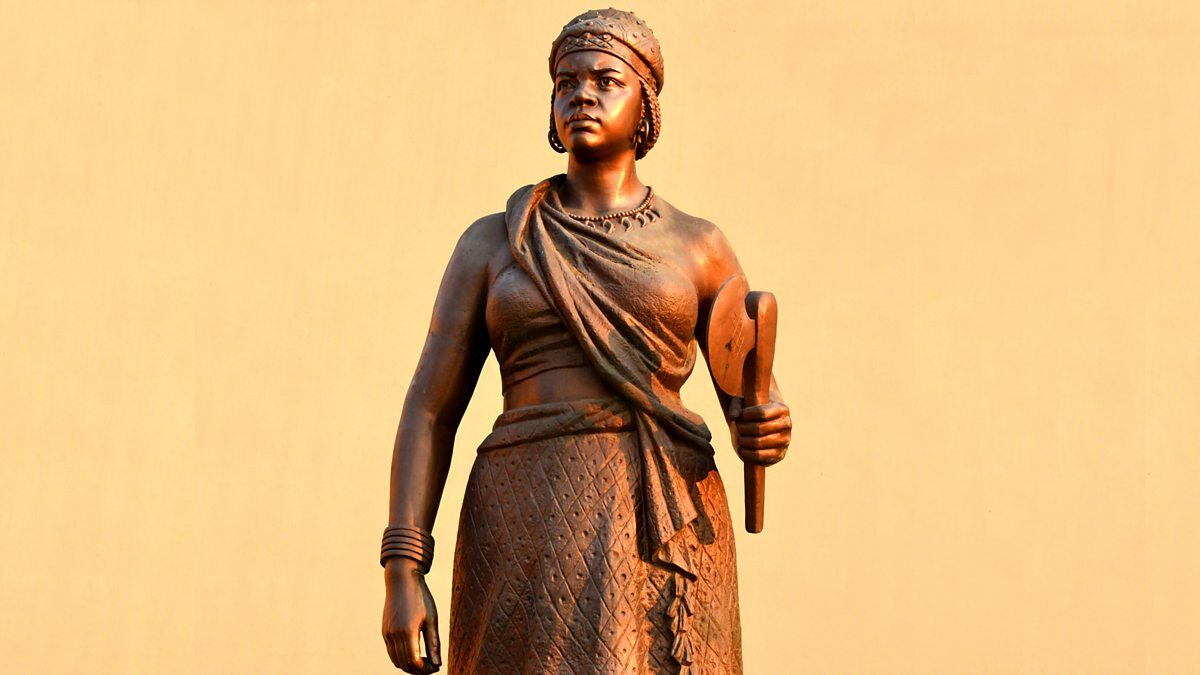
Queen Nzinga of Ndongo and Matamba was a fierce and strategic leader in the 17th century. She fought against Portuguese colonization in Angola, using diplomacy, warfare, and alliances to protect her people. Nzinga's story is filled with incredible feats and bold decisions that make her a legendary figure in African history. From her clever negotiations to her military prowess, she left an indelible mark on her kingdom and beyond. Want to know more about this remarkable queen? Here are 13 great facts that showcase her resilience, intelligence, and unwavering determination to defend her land and culture.
Key Takeaways:
- Queen Nzinga, a fearless leader, used diplomacy and military prowess to resist Portuguese colonization and preserve her people's culture, leaving a lasting legacy of strength and resilience.
- Nzinga's story continues to inspire people worldwide, with her birthday celebrated as a national holiday and her legacy as a powerful female leader inspiring women and girls to pursue leadership roles.
Queen Nzinga's Early Life
Queen Nzinga, also known as Nzinga Mbande, was a formidable leader and warrior queen of the Ndongo and Matamba Kingdoms in present-day Angola. Her early life set the stage for her future as a powerful ruler.
-
Born in 1583, Nzinga was the daughter of Ngola Kiluanji Kia Samba, the king of Ndongo. Her royal lineage provided her with a strong foundation in leadership and diplomacy.
-
Nzinga's name means "the one who comes from the water," reflecting her birth during a river crossing. This name would come to symbolize her fluid and adaptable nature.
Rise to Power
Nzinga's ascent to power was marked by strategic moves and fierce determination. She navigated a male-dominated society to become a revered queen.
-
In 1624, Nzinga became queen after the death of her brother, King Ngola Mbande. She took the throne during a period of intense conflict with Portuguese colonizers.
-
Nzinga's diplomatic skills were evident when she negotiated a peace treaty with the Portuguese in 1622. She famously sat on a servant's back to assert her equality with the Portuguese governor, who had provided no chair for her.
Military Prowess
Nzinga was not just a diplomat; she was also a skilled military leader. Her tactics and strategies were crucial in resisting Portuguese colonization.
-
Nzinga formed alliances with neighboring African tribes and even the Dutch to strengthen her military position against the Portuguese.
-
She led her troops into battle, often dressed as a man to inspire her soldiers and intimidate her enemies. Her presence on the battlefield was a testament to her bravery and leadership.
Cultural Impact
Nzinga's influence extended beyond politics and warfare. She played a significant role in preserving and promoting her people's culture and traditions.
-
Nzinga converted to Christianity and adopted the name Ana de Sousa, but she remained deeply connected to her African roots. This duality helped her navigate the complex political landscape of her time.
-
She promoted the practice of traditional African religions and customs, ensuring that her people's cultural heritage was preserved despite external pressures.
Legacy
Queen Nzinga's legacy is one of resilience, strength, and cultural pride. Her impact is still felt today in Angola and beyond.
-
Nzinga ruled for nearly 40 years, maintaining her kingdom's independence and resisting Portuguese domination until her death in 1663.
-
She is celebrated as a national heroine in Angola, with numerous monuments and institutions named in her honor.
Modern Recognition
Nzinga's story continues to inspire and educate people around the world. Her life and achievements are recognized in various ways today.
-
In 2002, the Angolan government declared her birthday, December 10, a national holiday known as "Nzinga Day."
-
Nzinga's story has been the subject of numerous books, documentaries, and academic studies, highlighting her significance in African and world history.
-
Her legacy as a powerful female leader has inspired countless women and girls to pursue leadership roles and fight for their rights.
The Legacy of Queen Nzinga
Queen Nzinga's story is a testament to resilience, intelligence, and leadership. Her strategic alliances, diplomatic skills, and fierce resistance against Portuguese colonization left an indelible mark on Angola's history. Nzinga's ability to navigate complex political landscapes and her unwavering commitment to her people's freedom make her a symbol of strength and empowerment. Her legacy continues to inspire those who fight for justice and equality. By understanding her life and achievements, we gain insight into the rich history of Africa and the enduring spirit of its leaders. Queen Nzinga's impact transcends time, reminding us of the power of determination and the importance of standing up against oppression. Her story is not just a chapter in history but a beacon of hope and courage for future generations.
Frequently Asked Questions
Was this page helpful?
Our commitment to delivering trustworthy and engaging content is at the heart of what we do. Each fact on our site is contributed by real users like you, bringing a wealth of diverse insights and information. To ensure the highest standards of accuracy and reliability, our dedicated editors meticulously review each submission. This process guarantees that the facts we share are not only fascinating but also credible. Trust in our commitment to quality and authenticity as you explore and learn with us.


